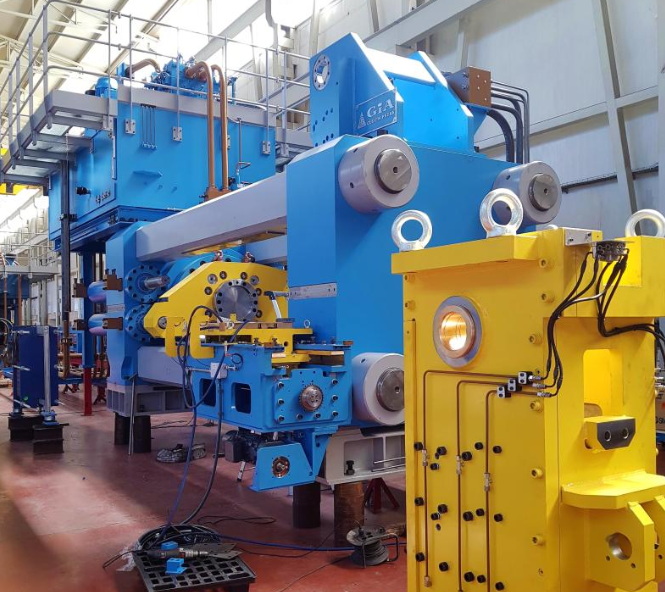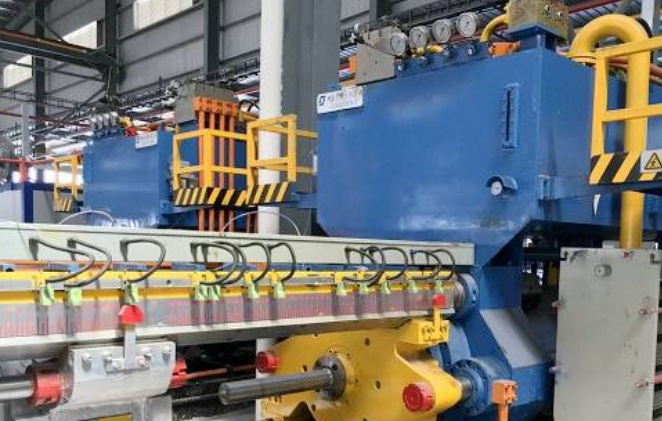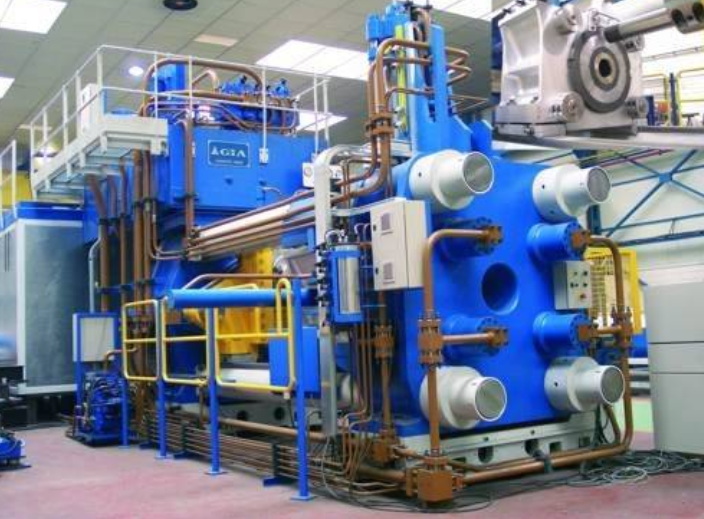Content Menu
● What is a Quenching System?
● Importance of Quenching in Metal Processing
● Key Features of Modern Quenching Systems
● Top Quenching System Manufacturers and Suppliers in America
>> Wisconsin Oven Corporation
>> Ajax Electric Company
>> General Kinematics
>> L&L Special Furnace Co.
>> SECO/WARWICK Group
>> Consolidated Engineering Company (CEC)
>> DixiTech CNC
>> AirPol
>> Nutec Bickley
>> Atomizing Systems, Inc.
>> Surface Combustion, Inc.
● Quenching Tank Manufacturers and Their Role
● Selection Criteria for Quenching System Suppliers
● Common Applications and Industries Served
● The Role of American Quenching System Manufacturers in the Global Market
● Trends and Innovations in Quenching System Technology
● Conclusion
● Frequently Asked Questions
>> 1. What types of quenching media are commonly used in American quenching systems?
>> 2. How do I ensure consistent hardness and case depth in my parts?
>> 3. Can quenching systems be integrated with automated production lines?
>> 4. What maintenance is required for quenching systems?
>> 5. Are American-made quenching systems suitable for export and OEM partnerships?
Quenching systems are fundamental to the modern metal heat treatment industry, providing the precise and rapid cooling necessary to achieve optimal mechanical properties in metals such as aluminum, steel, and titanium. Across North America, a robust network of quenching system manufacturers and suppliers serves a diverse range of industries, including aerospace, automotive, energy, heavy machinery, and more. This article presents a comprehensive overview of the leading American quenching system manufacturers, the technologies they offer, and essential guidance for international OEMs, brand owners, and manufacturers seeking reliable partners for their metal processing needs.

What is a Quenching System?
A quenching system is an engineered assembly designed to rapidly cool heated metal parts, typically after processes such as forging, casting, or heat treating. The primary objective of quenching is to alter the microstructure of the metal, enhancing properties like hardness, strength, and wear resistance. Quenching can be performed using various media, including water, oil, polymer solutions, brine, and inert gases. Modern systems are highly automated, featuring advanced controls and safety mechanisms to ensure uniform cooling and repeatable results across production batches.
Importance of Quenching in Metal Processing
Quenching is a critical step in the heat treatment of metals. It is the process that determines the final mechanical properties and performance of components used in demanding applications such as automotive parts, aircraft structures, and industrial machinery. Inadequate or uneven quenching can result in undesirable characteristics, including warping, residual stresses, or insufficient hardness, which may compromise the integrity and longevity of the final product.
Key Features of Modern Quenching Systems
Modern quenching system manufacturers and suppliers in America provide solutions equipped with a variety of advanced features, including:
- Precise temperature and atmosphere control: Ensures uniform heat treatment and consistent metallurgical results.
- Automated load handling and transfer: Reduces manual labor, increases throughput, and improves worker safety.
- Customizable tank sizes and agitation systems: Accommodates a wide range of part sizes and shapes, ensuring even cooling.
- Integrated filtration, cooling, and heating circuits: Maintains the quality and temperature of the quenching medium.
- Compliance with safety and quality standards: Adheres to regulations such as NFPA 86 and AMS2750D for safe and reliable operation.
- Remote monitoring and data logging: Enables real-time process control and traceability for quality assurance.
These features allow manufacturers to achieve high productivity, improved process control, and superior product quality, making American quenching systems a preferred choice for both domestic and international customers.
Top Quenching System Manufacturers and Suppliers in America
The United States is home to some of the world's most respected and innovative quenching system manufacturers and suppliers. Below is an overview of the leading companies, their specialties, and the industries they serve:
Wisconsin Oven Corporation
Wisconsin Oven Corp. is renowned for its custom-designed horizontal quenching equipment, high-capacity blowers, water agitation systems, and both gas and electric heating options. The company serves a broad range of industries, including aerospace, automotive, energy, and military sectors. Their systems are known for reliability, energy efficiency, and compliance with stringent industry standards.
Ajax Electric Company
Ajax Electric Co. specializes in heat treating furnaces for annealing, quenching, shape setting, and surface treatment. Their equipment is widely used in aerospace, agriculture, and medical applications. The company is recognized for its robust engineering, advanced process controls, and ability to deliver customized solutions for complex heat treatment challenges.
General Kinematics
General Kinematics designs and manufactures custom quenching equipment for foundry, recycling, and mining industries. Their systems are engineered for high throughput and durability, making them ideal for heavy-duty applications. General Kinematics is also known for its innovative vibration technology, which enhances the efficiency of quenching and material handling processes.
L&L Special Furnace Co.
L&L Special Furnace specializes in custom quenching tanks, featuring double-welded construction, powerful agitators, and precise temperature gauges. Their systems are widely used in general industry for both research and production applications. L&L is committed to quality, offering a range of sizes and configurations to meet diverse customer needs.
SECO/WARWICK Group
SECO/WARWICK is an ISO 9001 certified manufacturer offering oil, synthetic, and water quenching media systems, as well as pressurized chambers and atmosphere protection. Their advanced quenching solutions are used in the automotive, fastener, and aerospace industries. SECO/WARWICK is known for its global reach and ability to deliver turnkey systems for complex heat treatment processes.
Consolidated Engineering Company (CEC)
CEC specializes in automated progressive quenching systems, supporting water, synthetic, air, air-mist, and fluid bed media. Their equipment is widely used in the aerospace, automotive, and railroad industries. CEC is recognized for its innovative automation, process control, and commitment to energy efficiency.
DixiTech CNC
DixiTech CNC provides programmable, PLC-controlled water and air heat exchanger systems for heat treating and cooling applications. Their systems are designed for flexibility, ease of integration, and high reliability, making them a popular choice for manufacturers seeking advanced process control.
AirPol
AirPol offers design, fabrication, and installation services for air pollution control and system optimization, serving industries such as aluminum, mining, chemical, and pulp & paper. Their expertise in environmental compliance and system efficiency makes them a valuable partner for companies with stringent regulatory requirements.
Nutec Bickley
Nutec Bickley manufactures batch quenching systems equipped with robots and custom manipulators, as well as air and spray quenching options. Their solutions are ideal for steel and aluminum castings, forgings, and other high-volume applications. Nutec Bickley is known for its commitment to automation and process innovation.
Atomizing Systems, Inc.
Atomizing Systems, Inc. specializes in fog systems for cooling, featuring touch-screen and PLC controls, as well as advanced sanitation options. Their systems are used in industrial, clean room, and printing applications, providing precise and efficient cooling solutions.
Surface Combustion, Inc.
Surface Combustion, Inc. is a leader in quench systems for batch and integral quench furnaces, offering custom layouts and compliance with NFPA 86. Their systems are widely used in aerospace, automotive, mining, and general industry. Surface Combustion is renowned for its engineering excellence, innovation, and customer-focused service.

Quenching Tank Manufacturers and Their Role
Quenching tanks are a vital component of any quenching system, providing the medium for rapid cooling. Leading quenching tank manufacturers and suppliers in the USA include:
- Surface Combustion, Inc.: Offers turnkey quench and surge tanks for a variety of industries.
- Cress Mfg. Co.: Provides custom quench tanks in various sizes for both research and production environments.
- Wisconsin Oven Corp.: Supplies heated and ambient quenching tanks, along with maintenance services.
- PKG Equipment, Inc.: Manufactures custom vertical, rectangular, and cylindrical tanks in nickel alloys, carbon, and stainless steel.
- McEnglevan Industrial Furnace Company, Inc.: Produces a wide range of tank sizes and styles for oil, water, and polymer quenching.
These manufacturers play a crucial role in ensuring that quenching systems deliver consistent and reliable performance, tailored to the specific needs of each application.
Selection Criteria for Quenching System Suppliers
When selecting a quenching system manufacturer or supplier, it is important to consider several key factors:
- Experience and industry reputation: Choose suppliers with a proven track record and positive customer references.
- Customization capabilities: Ensure the supplier can tailor systems to your specific alloys, part sizes, and production requirements.
- Compliance with safety and quality standards: Look for adherence to international standards such as NFPA 86 and AMS2750D.
- After-sales support and maintenance: Reliable service, spare parts availability, and technical support are essential for long-term success.
- Integration with existing production lines: The ability to seamlessly integrate new quenching systems with your current operations is critical.
- References and case studies: Request examples of similar projects to assess the supplier's expertise and reliability.
Common Applications and Industries Served
Quenching system manufacturers and suppliers in America cater to a broad spectrum of industries, including:
- Aerospace: Landing gear, engine components, structural parts.
- Automotive: Gears, shafts, axles, fasteners.
- Railroad: Wheels, axles, couplings.
- Mining and Heavy Equipment: Wear parts, tools, structural elements.
- Metalworking and Foundries: Castings, forgings, billets.
- Defense and Military: Armored vehicle components, weapon parts.
These industries rely on advanced quenching systems to ensure the durability, safety, and performance of their critical components.
The Role of American Quenching System Manufacturers in the Global Market
American quenching system manufacturers and suppliers are recognized worldwide for their commitment to innovation, quality, and customer service. Many companies have established strong relationships with international OEMs, providing systems that meet global standards and are tailored to the unique requirements of each market. Whether you are a brand owner, wholesaler, or manufacturer, partnering with a reputable American supplier can provide access to cutting-edge technology, robust support, and a competitive edge in your industry.
Trends and Innovations in Quenching System Technology
The field of quenching system manufacturing is continuously evolving, driven by advances in automation, digitalization, and environmental sustainability. Some of the latest trends include:
- Industry 4.0 Integration: Modern quenching systems are increasingly equipped with sensors, data analytics, and remote monitoring capabilities, enabling predictive maintenance and process optimization.
- Energy Efficiency: Manufacturers are developing systems that minimize energy consumption through improved insulation, heat recovery, and optimized process cycles.
- Environmental Compliance: There is a growing emphasis on reducing the environmental impact of quenching operations, including the use of eco-friendly quenching media and advanced filtration systems.
- Customization and Flexibility: Customers demand systems that can handle a wide variety of materials, part sizes, and production volumes, leading to more modular and adaptable designs.
- Enhanced Safety Features: Advanced safety interlocks, fire suppression systems, and real-time monitoring are now standard in many American-made quenching systems.
By staying at the forefront of these trends, American quenching system manufacturers and suppliers continue to set the global standard for quality and performance.
Conclusion
Selecting the right quenching system manufacturer or supplier is a critical decision for any company involved in metal processing. The American market offers a wealth of expertise, innovation, and reliability, with manufacturers capable of delivering highly customized solutions for a wide range of industries. By understanding the key features, selection criteria, and industry trends outlined in this article, international OEMs, brand owners, and manufacturers can confidently choose a partner that will help them achieve their production goals and maintain a competitive edge in the global marketplace.

Frequently Asked Questions
1. What types of quenching media are commonly used in American quenching systems?
Water, oil, polymer solutions, brine, and inert gases are the most common quenching media. The choice of medium depends on the desired cooling rate, material properties, and specific application requirements.
2. How do I ensure consistent hardness and case depth in my parts?
Consistent results require precise control of temperature, atmosphere, and quench cycle time. Modern systems use advanced controls and regular metallurgical testing to verify outcomes and maintain product quality.
3. Can quenching systems be integrated with automated production lines?
Yes, leading manufacturers offer systems with automated load handling, robotics, and integration with MES/ERP systems for seamless production and process optimization.
4. What maintenance is required for quenching systems?
Routine maintenance includes inspection and replacement of seals, pumps, agitation systems, and control components. Preventative maintenance programs are recommended to maximize system longevity and reliability.
5. Are American-made quenching systems suitable for export and OEM partnerships?
Absolutely. Many American suppliers have extensive experience working with international OEMs and can provide systems compliant with global standards, tailored to specific requirements, and supported by reliable after-sales service.













